Chapter 3, Part two, The Start (2013-2016)
By the time journalist Keith Zhu, ’18, was 18 years old, he decided to write a short serialized novel, Breaking Through, reflecting on his life experience. Zhu wants to show his background and his dream through this novel, the unique points of his life and also the depression he experienced on the road to achieving his goal.
For Keith’s first chapter, read Chapter One: Road Trace .
For Keith’s second chapter, read The old man on Waikiki Beach.
For Keith’s third chapter, part one, read Early Life (1999-2013)

My father quit his job and moved to stay with me and my mom at the beginning of 2014. I was 14 years old, in my last semester of junior high. In the first couple weeks, I was always wondering when should he leave, but soon I became used to living with him. Every day he drove me to and from school until I finished junior high.
After I graduated, father supported me enrolled with one of the best high schools in the city. Yet I quit in just two weeks.I I realized I was tired of the high academic pressure, and decided to study in the U.S.
I asked my father to talk to an education placement agency and paid a tuition fee so I could enrol with their language program to prepare for the Toefl Junior Test. At the study-abroad agent’s request, we shot our first ever family portrait since I was born. We did frame it; it was just a regular picture.
Father kept telling me to study hard for the test, to earn 800 out of 900 so I could get into a good high school. I have never been a master of academic. I got my highest Toefl Junior score in the third time I’ve taken it, it was 780. It was a standard score, good enough for getting into a standard high school in the U.S.
Mother’s education on me had always been an anti-exam-oriented method, I believed a good personality and leadership skill weighs way more than the paper of score report. But father insisted on the idea that an over-800 score would help me to get into a good school. I remember once I communicated my high school application with my academic advisor, she complained about my father’s obstination.
“I think Keith’s father’s ideology is solidified,” Dai Yan, my academic advisor complained. “He thinks if Keith can get an 800 then he can get into a good school, but that is not how the American high school application process works. It is not about the higher score you get the better school you are in, the school would consider each applicaticants as a whole person.”
I spent five months finishing my pre-study course, I got accepted by the majority of the schools which I applied. I chose a 3,000 people big school, in Philadelphia. Then, to follow the agenda I made at the beginning of the crouse, I started taking my break, from the April 2015 until my school started in September.
I came out with the idea of traveling with a couple of my friends to Maldives, my dream destination. I remember once I watched a commercial on the big screen at a mall in Beijing. There was a coral island; the sand was white, reflecting the sunshine through the crystal ocean. A girl sat on the balcony of the water villa, watching a baby tiger shark roaming in the shoal.
Father supported my trip. When I was on that wonderland, I snorkeled with crowds of transparent fishes

and couple baby sharks. I drove a motorboat to chase dolphins under the sunset. I had a French dinner with fishes in the world-first underwater restaurant. And dived with a couple 30-foot-long whale sharks.
After I came back, father took me to the city immigration health department, took my physical exam in preparation for studying in the United States.
While I was waiting for my turn to take a shot, an old lady in a white gown from the lab came to me, asked me to draw my blood again. She was puzzled, wondering if there were any sections she miscalculated.
After ten minutes, the results came out, the old lady asked me to call my father.
“Your son’s blood platelet account is 14 thousand, I have never seen anybody with that low of a number,” the old lady said to my father. “Normal people have around 100 thousand to 300 thousand, but your son’s is 14.”
The next morning, mother took me to the best hospital in central China, which is just across the street from my school. After I got my blood drawn, I walked straight to class.
Mother called me in the middle of the class, I picked up the phone and heard mother’s voice, “Hey son, your dad is on his way to get you to the hospital. We are taking you to the Children’s Hospital. Your issue is not a big problem. Don’t worry.”
My teacher and I searched my disease online, and found out its high death rate. My academic advisor Dai Yan came into the classroom, sat down and ask me how am I feeling right now, she said my mom asked her to calm me down.
After 15 minutes, father arrived. e had no expression on his face. He just looked forward and drove his car, and muttered.
“Your disease is not a big issue, it is curable but you are in a little dangerous right now. I know you can go the hospital by yourself but I am driving you just to avoid any accidents happen on the way.”
I was diagnosed with an acute thrombocytopenia. Four or five doctors stood around me and asked me questions continually. Mother held my right hand during the whole interview; she kept feeling my hair and saying: “Baby, it’s okay.”
“I took the paper to the doctor, he looked at the paper and screamed, ‘Where is the kid?’” Mother muttered. I did not know she was talking to herself or me. Her pupils dilated, gazing at the outside tree through the window.
“I said my son is in the school,” Mother continued. The doctor screamed again, he said: “He is still in the school?! Now?! Get him out and send him to the hospital! Right now! Your son’s platelet account is five thousands right now, almost like zero. He could be internally hemorrhaging even if he is lying on the bed and nobody touches him. If he bleeds, I can tell you that nobody can stop it!”
I was listening to Mother tell the story which just happened one hour ago and looked at her wondering eyes. She turned her head to look at me and said, “The doctor said they don’t have room in the Union Hospital now, so he wanted me to check if there was any room available in the Children’s Hospital. When I came out from the hospital, I could not see anything. I felt like my soul was out of my body, and I did not even know how I got here.”
The hematology department was on the 10th floor. There was a quarantined area which was packed with children with leukemia. The rooms were all full, so the hospital made a lot of folding beds line the walls in the hallway. They used screens to delimit temporary wards at every corner. I came out of the doctor’s office, and father came to me and led me to the last available hallway bed, which was near the valve.

Father went to doctors, management and the dean of the hospital, and called every specialist he knew, trying to figure out my disease and see if it was possible to coordinate me with a ward.
The Children’s Hospital was just a couple streets away from the house. Every day for a week I was in the hospital. Father left the hospital once I finished my daily blood test. He made noodle soup and congee and walked back. He communicated with doctors every two hours. He ran to the laboratory building several times, checking if the results of my bone-marrow sample extraction were released, and also urged the hospital to prioritize my lab assay.
On the fourth day of staying in the hospital, Father ran to me and laughed. He said, “Son! The result came out, your hematopoietic function is okay, it is not leukemia!” I was relieved. Father ran to the doctors and told them the news. Since the house was so close to the hospital, doctors allowed Father to put me out of the hospital earlier. Father bought a basket of fruits to the old lady, he said he was going to appreciate that old lady for several times during my stay in the hospital.
I rescheduled my trip to Australia right after I got home. And I decided to redecorate my room a little bit, just to make it comfortable since I was going to stay home for a while. I ordered blankets, carpets, airbed and a couple of bolsters. Couple days after, a typical conversation between father and mother during lunch started getting serious. Father was holding his rice bowl in his left hand, his right hand was holding chopsticks and tapped twice on the bowl.
“What should we do now?” Father looked at his bowl and said in dialect. “My saving account only has a little left.”
“Honey! Honey!” Mother’s voice started shaking and her face distorted. “Your face nerves are twitching, you have hypertension, you need to calm down. Everything is gonna be okay!”
Father muttered for a little while. He talked about how his recent business was wrecked in a swindle which almost hollowed out all of my family’s saving. His eyes were wandering, his words were spoken on and off, and desperation had shown on his face. I vaguely remember Father abreacted about his pressure from the house loan, car loan, counsel fee, and new house’s decoration.
“Hum, it is better for me just to die, I don’t want to worry about those things anymore.” For a moment he mentioned suicide and Mother just kept saying, “Shut up, don’t say that kind of things. We are going to walk through it together.”
Father shook his head and said, “Who knows.” Then he suddenly turned his head to me and looked at my eyes and said, “Don’t worry about your high school tuition, I had already talked to one of my friends and she is going to pay for you.”

Mother warned me to get prepared for the worst situation, we may have to sell our house and live off a narrow margin again. She also said It was also impossible to pay for my solo trip to Australia.
I walked into my room after lunch, I sat on the chair which I recently just wiped for my new upcoming blanket. I prayed for my family’s financial situation to get better. Couple drops of tear fell from my eyes, I went on my online shopping account, canceled all the orders I made, and my air ticket and hotel booking. But after a few seconds, I called every one of my friends to see if I could borrow some money from them so I could still travel to Australia.
Father was running for the court case and seeking new business opportunities so we could still have foods on the table. I remember one day father took me to the lawyer’s office, when we were walking, father simply explained the case too me. In short, a guy borrowed money from father’s business mortgaged something that does not belong to him. A very simple idea just came out of my mouth.
“According to the law, A sells B’s stuff to C, this stuff actually belongs to C in law.” I said, father all at a sudden clapped on his head and yell “Right!” And started laughing.
At the lawyer’s office, I saw millionaire Liu sitting on a couch in the hallway. He seemed exhausted. When he saw us, he stood up and moved his mouth a little bit to make a smile. He could not even stand straight, he talked about the case with my father in a faint voice.
I did not have a birthday cake for my 16th birthday, nor a celebration. But with my own savings, as well as support from my friends and father, I traveled on my first-ever solo trip four days after my birthday, and came back home after 17 days. I could never forget the smile on my parents’ faces when I came from the airport. It was the first time I saw Father and Mother standing together and waiting for me. Father took my luggage and drove us home, and Mother started asking about my trip to Australia.
We came home, I went to my room to put away my luggage, and Father sat on the couch in the living room and yelled: “Son! Come here!”
“The court decision ruled his (defendant’s) house to me, should I take it?” Father held his cup and took a sip of tea, then he looked at me.
“Why not?” I responded decidedly, amazement showing on my face.
“This house belongs to his son, he left it for his son’s marriage. If I take it, this family have no place to live.” Father gazed at his cup and trying to pick out some tea residues.
“Look what they have done, that’s what they deserve!” I yelled.
“But it is not his son’s fault,” Father said as he continued to gaze at his teacup.
“Like father, like son, his son can’t be any good ones” I firmly responded.
“You are like me,” Father laughed.

I did not know if Father had taken their house or not. Two months after I came back from Australia, I took off to Philadelphia to start my high school journey. I communicated my life with Mother most of the time. Father never talked about his business with Mother, but sometime he would like to speak with me. He appreciated me and said, “Son, you really have the gift of doing business.”
My life seemed to be much more comfortable when I came to the United States. I no longer heard Father grumbling about his business ever since. In my second academic semester of 10th grade, I traveled to a lot of major cities in the United States, and I made up my mind to get into Harvard when I traveled to Boston. Of course, I told all of these to my mother. Every time Father texted me, he always began with “Hey son, which part of the earth are you at now?” and ended with, “Remember to do your blood test!”
During the whole year of my 10th grade, I FaceTimed Father once. It was April 2016. The subject was about my trip to the South Pole. After I finished my 10th grade in Philadelphia in 2016, I met my father in Shanghai. He seemed to have lost over 20 pounds from the last time I saw him during Christmas. I then texted Mother and said, “How often can you guys have meat in meals?”
“Shut up son! We are not that poor yet.” Mother replied with a laughing emoji.
Father said it was because he started doing exercise, but all of us could tell his weight loss was caused by exhaustion. His beer belly was gone, and his shirt and pants seemed too big for him as they slacked naturally. I remember the words our friend Danny Wong said to me when she treated me a dinner on the top of the world’s second-highest skyscraper in Shanghai.
“Keithy, you saw how thin and emaciated your dad was right?” Danny was sitting next to me, her best friend was sitting in front of me. We all put down our tablewares in the middle of the dinner. “He is really exhausted right now, I can tell. And you see, we are fellows from the same town, so of course, I hope your family’s situation will get better.”
Father’s hard work had made the family’s financial state stable, but as a consequence, he was more stressed and desperate. Father took out all his emotions on Mother. Fighting was their daily routine and it seemed to be the way they kept their marriage intact.
When I was in that house, I ate breakfast at home and went outside to hang out with my friends for most of those days. Every day I came back to the house before Mother came back from her job at 5 p.m. Father was always in the living room, lying on the sofa on his left side, watching Sino-Japanese War dramas with that pair of laziness and glassy eyes.

He supported his head with his left arm, his rough face was stiff and blank. Every time I saw this scene, it always reminded me of a picture of opium addicts from the early 1800s who drained their life away in smoky dens.
Mother grumbled, “Look at the woman in other houses, look at our neighbors and their wives. They all have time to do their hair, do their nails, go to salons, hang out and go shopping. Wish one of them would wake up and do breakfast, then go to work, come back home and start making dinner, clean up dinner and wash the dishes, then mop the floor and wash the clothes. I serve 24/7, and I don’t even have time to do my own things!”
Father would turn his head away, and continue watching the Sino-Japanese War TV.
To read Part 1 of Chapter 3 of Zhu’s book, read Breaking Through: Father (Lies on the Sickbed), Part One. For more articles, read Join the Discussion: 2018 PyeongChang Winter Olympics.
Keith Zhu can be reached via email.

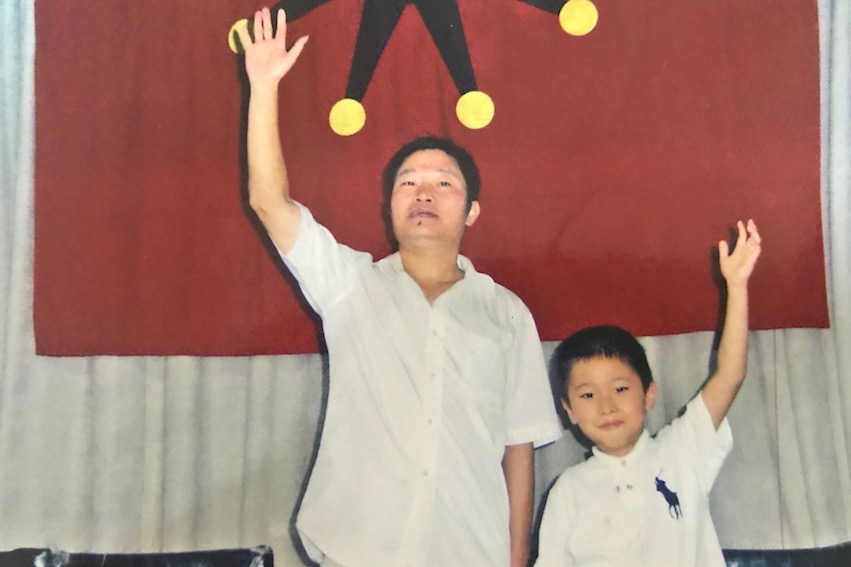
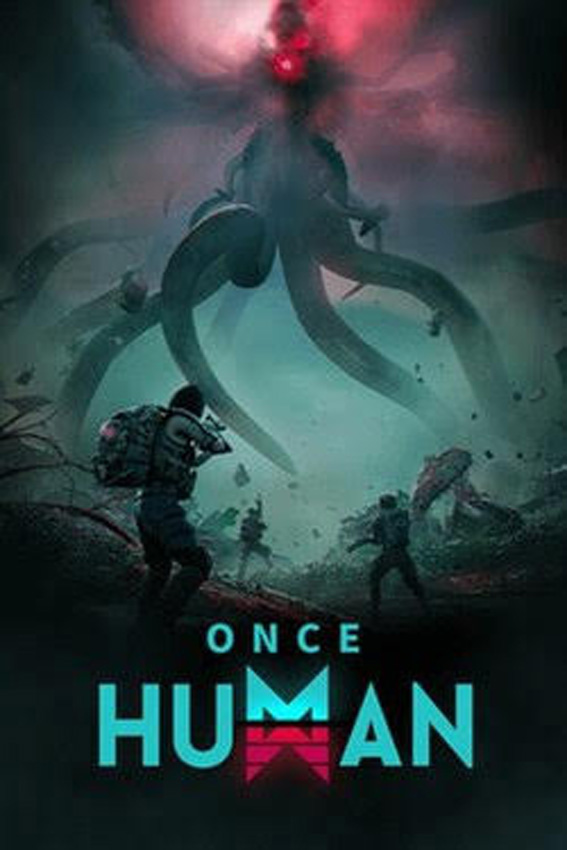

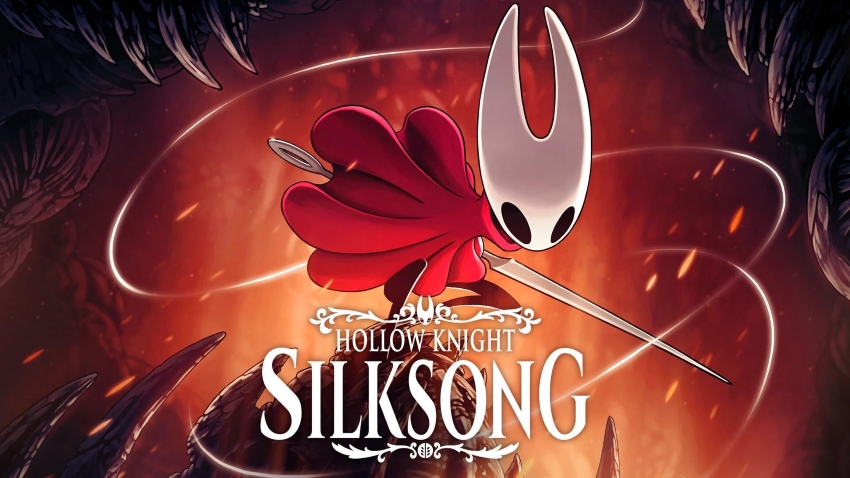
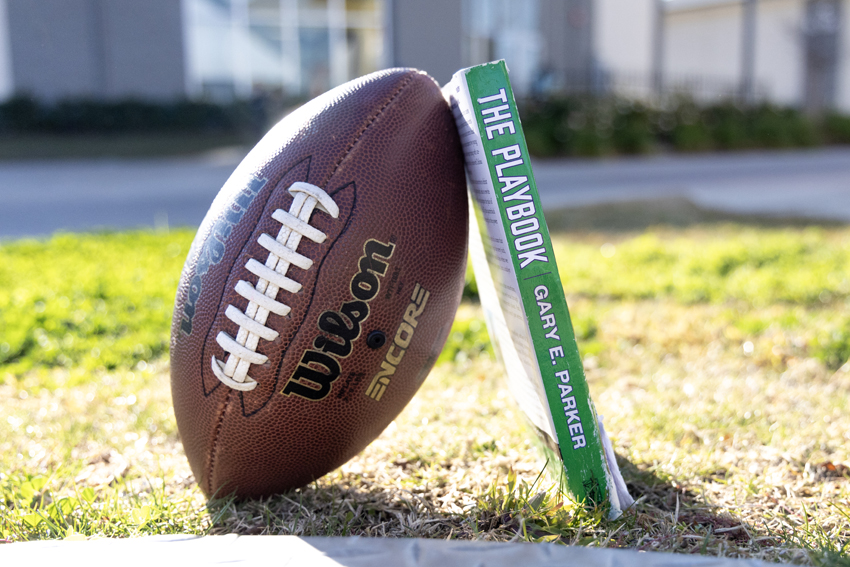
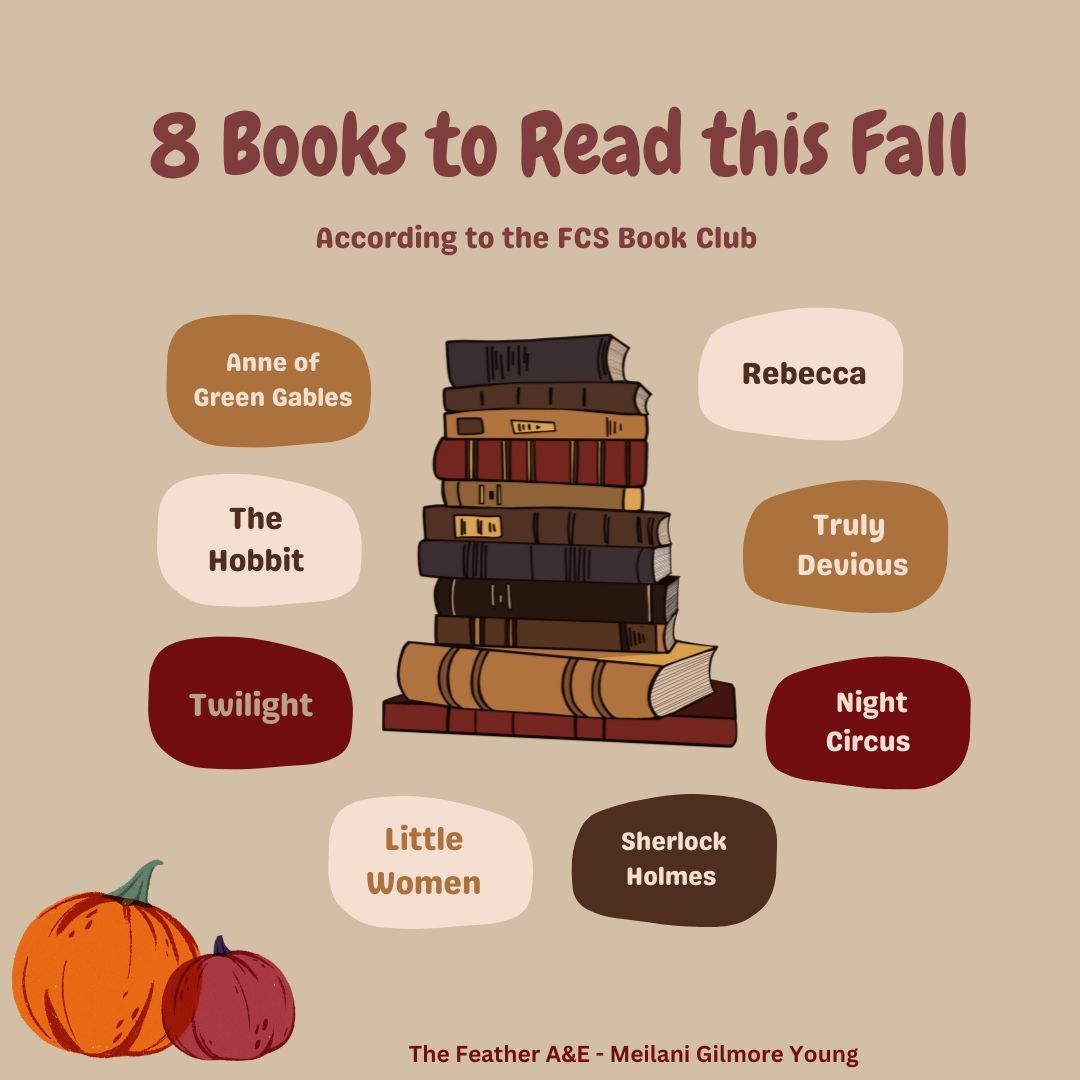
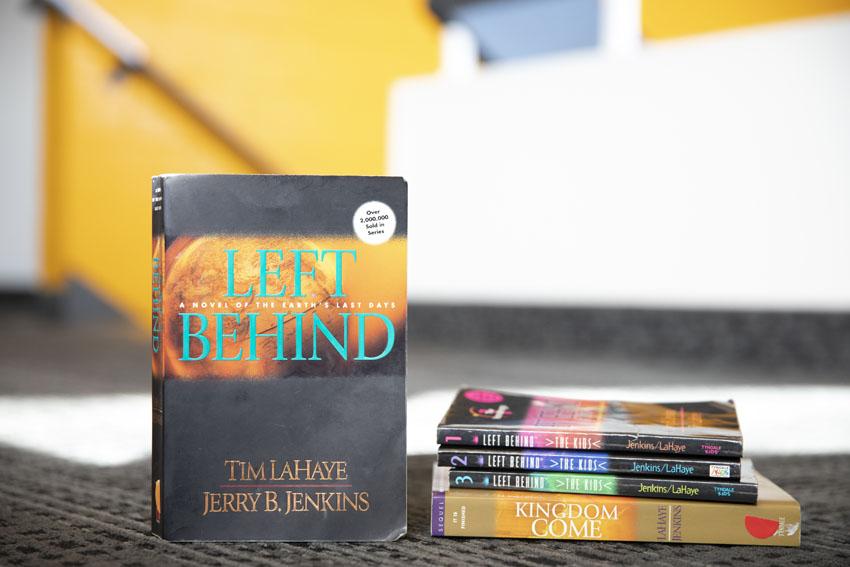
Even Ni • Feb 25, 2018 at 8:59 pm
Santa Maria, questo capitolo mi ha sorpreso molto di più di quello precedente. Adoro ogni parola di questo lavoro, non stressante da leggere e non ci sono frasi inutili in tutti questi migliaia parole. Hai dato proprio una figura tridimensionale e completo ai personaggi che sono apparsi in questo capitolo. Il timeline molto liscio e la narrazione è molto incastrato uno dietro all’altro. È troppo corto da leggere, sono molto ecitato in attesa della parte successiva, non deludermi. Bacio.
Zhu Yunxi • Feb 25, 2018 at 9:06 pm
Translation:
Santa Maria, this chapter surprised me much more than the previous one. I love every word of this work, not stressful to read and there are no useless phrases in all these thousands of words. You gave a three-dimensional and complete figure to the characters that appeared in this chapter. The very smooth timeline and the narration is very stuck one behind the other. It’s too short to read, I’m very excited waiting for the next part, do not disappoint me. Kiss.
Calvin Kong • Feb 23, 2018 at 11:12 am
great article!!!
Jacob Provost • Feb 23, 2018 at 11:11 am
Great job on the article Keith!!
Nap Hang Wong • Feb 23, 2018 at 11:06 am
Keith, nice article!
Jacob Hyatt • Feb 23, 2018 at 9:33 am
Keith this is an amazing article. It’s cool to see background to what made you the man you are today.
Logan Lewis • Feb 23, 2018 at 8:38 am
Keith, you are a legend! Sweet article!
Samantha Poplin • Feb 22, 2018 at 11:16 pm
Loved reading this!! Can’t wait to hear the rest. Thank you for sharing.?
trisha • Feb 22, 2018 at 10:59 pm
I love this so much, Keith!This is so good, I am so looking forward next chapter, you should share more of your past experience!!Good job!
Mariana Fikse • Feb 22, 2018 at 8:26 pm
Great job Keith! I can’t wait for the next chapter! Keep it up.
Celeste Counts • Feb 22, 2018 at 8:23 pm
Wow amazing article Keith! It’s so cool to get to read about your life and your past experiences.